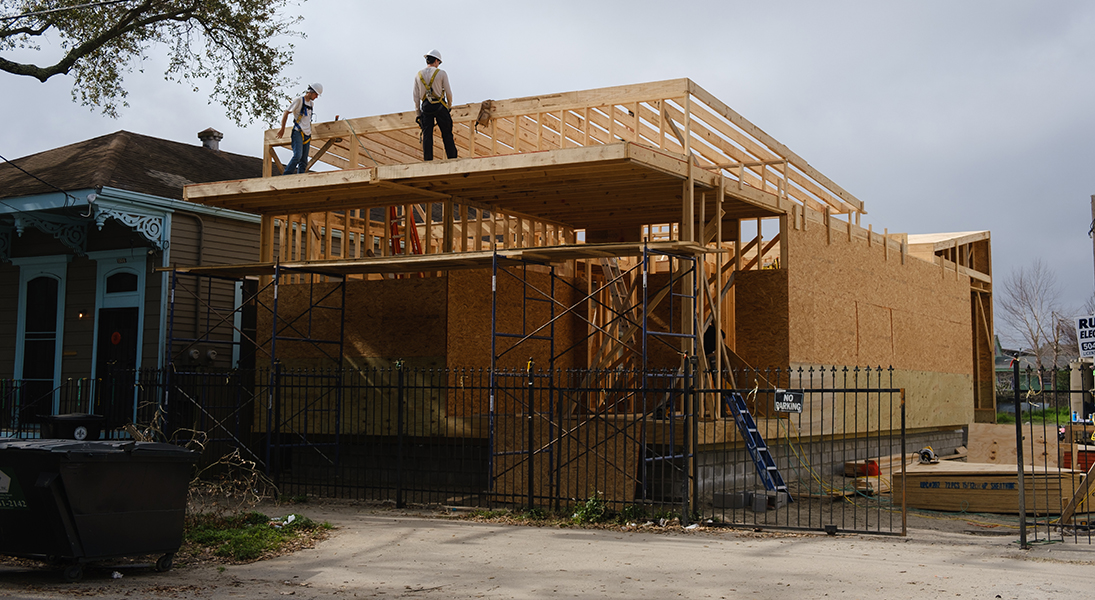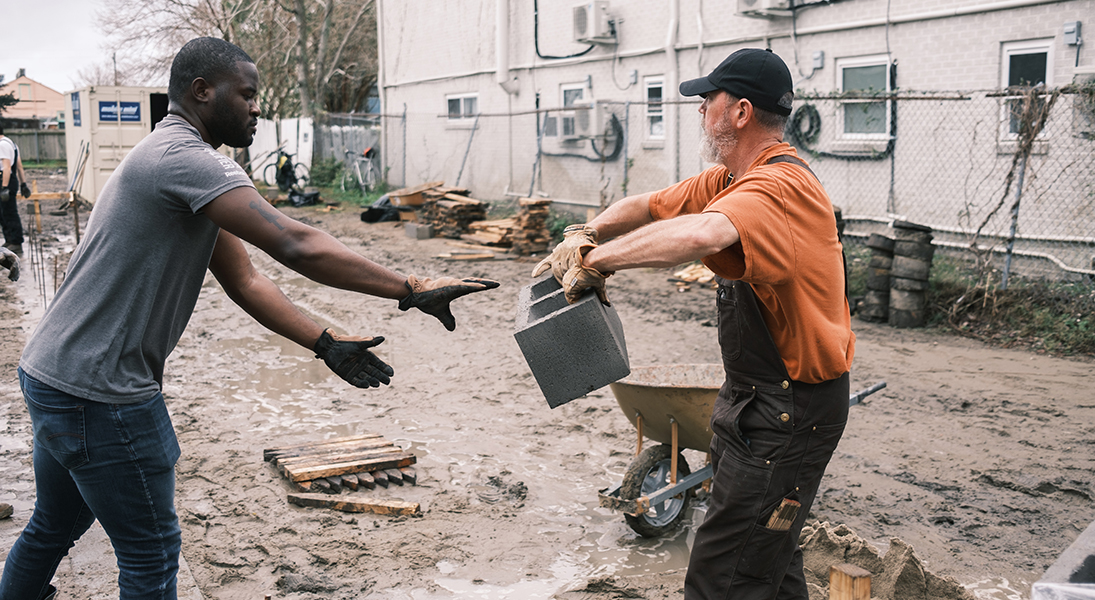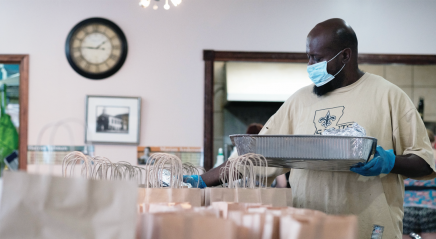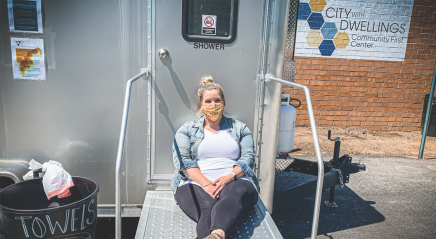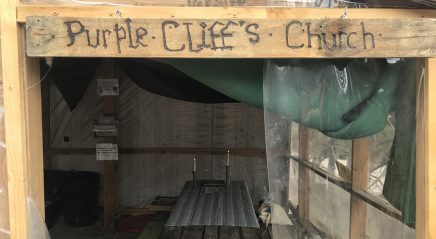In history-rich New Orleans, a Lutheran congregation and a local research university have come together to build a brighter future for some of the city’s most vulnerable residents.
Bethlehem Lutheran Church and Tulane University are collaborating on a multiyear project to bring affordable housing for people living with HIV to Bethlehem’s Central City neighborhood, where the median household income is less than $19,000.
Construction began in January on the first of four two-bedroom, two-bathroom townhouses, which are scheduled for occupancy in June. Each unit will include an interior courtyard, a generous front porch, a large galley kitchen and an enclosed back deck, said Byron J. Mouton, professor of practice at Tulane’s School of Architecture.
“These homes will be nicely designed and fabricated—our designs borrow from the past to move forward,” Mouton said. “We don’t need to reproduce, re-create or reinvent history. It’s here. New Orleans is a really old place.”
Upon completion, each home, sited on church property and accessible under the Americans with Disabilities Act, will be owned by the congregation and rented through CrescentCare, a public-private partnership that emphasizes helping people who are traditionally underserved in health care.
“It was the right idea and the right mission for us.”
Tulane’s architecture school has donated the cost of designing and constructing the 1,100-square-foot homes through URBANbuild, a program directed by Mouton. URBANbuild was formed in the wake of Hurricane Katrina, which devastated New Orleans in August 2005. Each fall, students in the program design a home, and beginning in late winter, they build it. The nonprofit’s projects have been focused on Central City.
Bethlehem fundraising will cover the $225,000 needed for site preparation, materials and permitting. “It all happened really quickly,” said Ben Groth, pastor of the congregation. “It was the right idea and the right mission for us, and a set of things Tulane was interested in too.” One of the nation’s oldest historically Black Lutheran congregations, Bethlehem has been serving New Orleans for 133 years.
Mouton first got involved with Bethlehem when Groth and Arthur Lee, the congregation’s president, allowed URBANbuild to stage a project on the vacant lot adjacent to the church in early 2021. “We talked about this piece of land that was basically the church’s overflow parking lot,” Groth recalled. “It was bought in the late ’90s with the hope it would become something someday, but there was never a clear plan for it.”
“We learned about how they’d started Community Table, and we were interested in that,” said Mouton, referring to Bethlehem’s program that distributes about 500 free, hot meals per week. “They were interested in what we’re doing because they have goals to help feed the poor and to help house the [unhoused].”
“They’re making a difference”
“Bethlehem is dedicated to the community but did not have the expertise to do housing on our own,” Groth said. “Housing was a point of connection for Byron and us, and we had a conversation about if there was potential to partner with each other.”
Once Mouton, Groth and the congregation began talking, a project outline came together quickly, as did approval from both Tulane and Bethlehem.
“I was thinking in terms of just planting seeds for four or five years down the road, but after a couple of meetings, it was clear he was excited,” Groth said. “Byron went through the deans and financial people and lawyers, then I got a call in early July 2021 and he said we could start that fall.”
Because of Tulane’s donated work, each home will be built at a savings of more than $100,000, Groth said.
“We want to keep growing our capacity to serve our neighborhood.”
“Those savings brought the project into the range where it still felt ambitious but we thought we could do it,” he added. “The way we’re doing it allows us to slowly build up our capacity to make it through four years, and then the goal in year five is to build a new sanctuary building.
Right now we’re putting out 500-plus free meals a week in a kitchen the size of the one in my 900-square-foot apartment, and we want to match our facilities to what we’re doing. We want to keep growing our capacity to serve our neighborhood.”
Groth notes that in New Orleans, a city with a population of less than 400,000, the wait list for public housing assistance has more than 20,000 names.
“I’m so impressed with this congregation,” Mouton said. “They want to build homes to help people, they jumped in with all the risks attached, they’re making a difference in their vicinity of the city.
“I’m not a churchgoing person, but I went to one of their services, and it was so satisfying to see how people blended together. Every race was represented, every class strata, it was pretty fantastic. I’m excited to see my students take part.”




